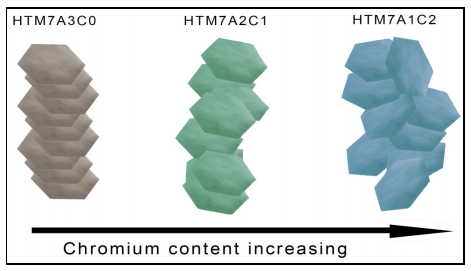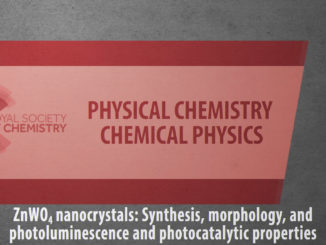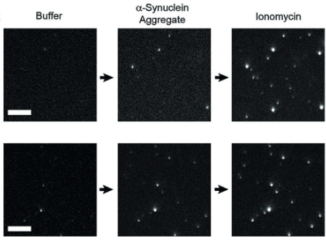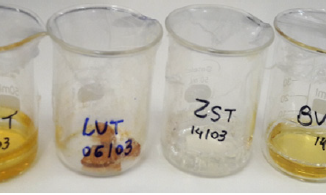
Influence of Chromium (III) Insertion on the Thermal Stability of Carbonated Magnesium and Aluminum Hydrotalcites Synthesized by the Hydroxide Coprecipitation Method
Abstract: Anionic clays are structures capable of adsorbing large quantities of water and other polar molecules in aqueous medium due to an ordered lamellar arrangement. Generally, the most stable composition contains magnesium and aluminum hydroxides, but other trivalent metal cations with similar ionic radii may also be inserted in co-substitution to the aluminum cation, targeting changes in the specificities of the adsorbed molecules, such as the chromium (III) one. The main objective of this work was to investigate the thermal stability of the carbonated magnesium-aluminum hydrotalcite when different amount of aluminium (III) cation is replaced by chromium (III) one. For that purposes, the hydrotalcite samples were obtained through the coprecipitation method at pH 11, followed by ageing stage at 80 degrees C, washing and drying at 100 degrees C for 24 h. The results obtained by thermal analysis, FTIR spectroscopy, and Xray diffractometry techniques have permitted to conclude that chromium insertion leads to turbostratic disorder along the c-axis, which affects also the thermal stability and crystallinity of the precipitated materials. The chromium- based hydrotalcites showed to be more easily dehydrated at lower temperatures, with dependence predominantly kinetic, which leads to significant volume contraction and the hindering of the subsequent dehydroxylation stage at higher temperatures.
Author(s): Barbosa, GV; Meirelles, JS; de Oliveira, LCS; Amoresi, RAC; Zaghete, MA; Cavalheiro, AA; da Silva, RCD
ORBITAL-THE ELECTRONIC JOURNAL OF CHEMISTRY
Volume: 10 Pages: 72-77 Published: JAN 2018
DOI: 10.17807/orbital.v10i1.1039




